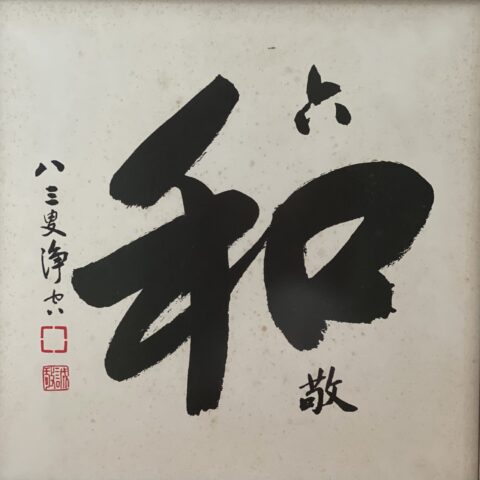
Ants, bacteria, intelligence, humanity and love.
Today I would like to share some unlikely connections to make some points about us both as individuals and a species. Rather than writing a whole essay about it, here are two articles which speaks about the need for us to redefine what we deem to be intelligence and what it means about humanity. The first article talks about the lessons to be drawn from the study of ants which have lived for over 100 million years vs our human existence for 2m years. Here are some extracts which I hope pique your interest to read the longer article found here:
“A lifelong advocate of progressive causes, Shapley also reflected regularly upon humanity’s long-term future, alongside the risks jeopardising it. He was among the first to suggest, during a lecture given while World War Two raged, that humanity should learn the lesson from 1918’s pandemic and prepare properly for the next one. Instead of battling each other, he prescribed a ‘design for fighting’ the risks facing all of humanity: declaring war on the gamut of evils, from pandemics to poverty, endangering the whole globe. (Only two audience members applauded; it appears we didn’t take heed.)”
“It wasn’t so much that scientists were claiming the ‘little winged fellows’ were rational like us (as some mocked). It was more that insect societies had achieved so much without anything like our brains. Maybe, then, it wasn’t a question of either intelligence or instinct, but of diversifying our definitions. For perhaps the first time, scientists were being led to recognise a very different type of wisdom and mind.”
“Relying on tried-and-tested instincts, honed over epochs, insect societies had proven their staying power. By comparison, humanity has only just embarked upon large-scale cooperation.”
“Humans, comparatively, are an inexperienced species, he wrote. “Moreover, we are hampered with brains. We have mentality to burn, and many do burn it, at both ends.” Shapley worried our ‘abnormal mentalities””
“…any creature which begins building megapolises and meddling with atoms, without overcoming belligerence, cannot survive.”
“Besides decentring Earth in space, he continued deflating human egoism by stressing that insects have, for geological durations, been practising ‘higher virtues’ which humanity ‘has only recently acquired.’ Humans shouldn’t be hasty when assuming ‘superiority’”
“There’s lots to learn from the bugs. But the deeper point is this: the history teaches that we shouldn’t be chauvinists when it comes to the workings of the mind. We should be magnanimous.”
Please read the longer BBC Future article here.
In offering the second article, I hope to offer a bridge to help us visualize how magnamity and care can begin to solve our problems and achieve wonderful feats. Once upon a time, we use to think the world was flat. Now we know better yet we continue to think and shape our behaviour around our egos and we somehow believe ourselves to be the centre of the universe in all senses. This is manifested in how we conduct our relationships, how we interact within our communities and configure and empower our organizations.
This second article offers us a perspective on possible applications and outcomes of changing our deep rooted self inflated view of ourselves in the world.
“Her journey is one of unrelenting perseverance and unbelievable good fortune. It’s a glowing tribute to the immense kindness of strangers. And it’s a story that just might save countless lives from the growing threat of antibiotic-resistant superbugs — maybe even your own.”
The second article on the inspiring story of Steffanie Strathdee can be found here. An amazing love story not just at the micro but also at a higher level which provides us with hope.
We all need a new lens through which to view ourselves and the world.

Little foot note: the Chinese character above is a picture of the word “harmony” which is core concept of Chinese thinking. It happens also to be the Chinese name my parents gave me.
And if we are thinking of changing our future, what better way than to shape our children’s thinking early:
